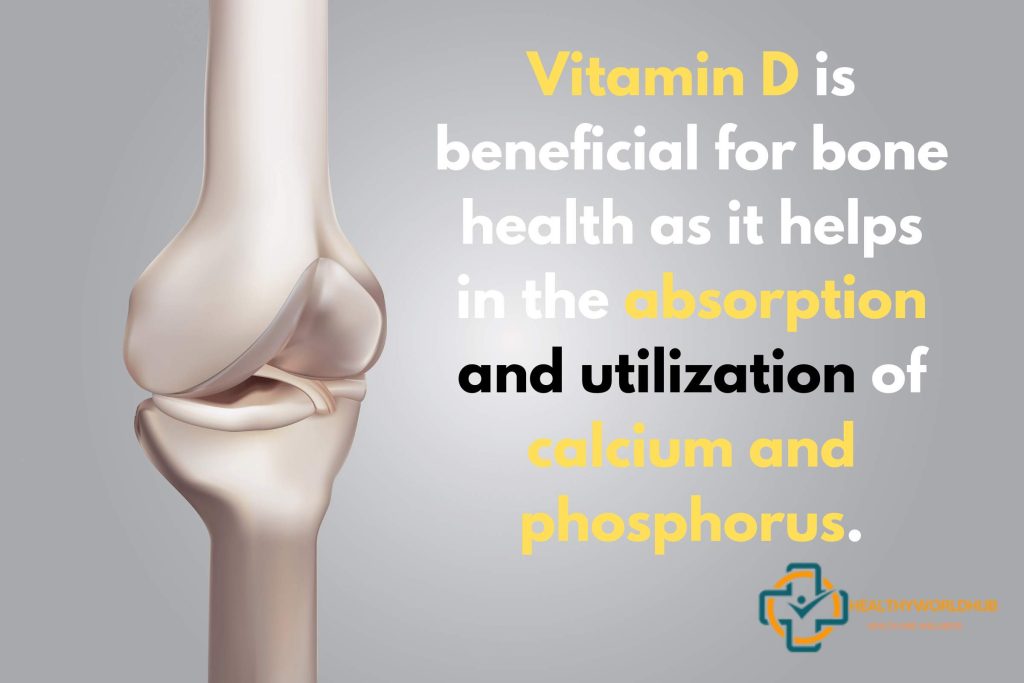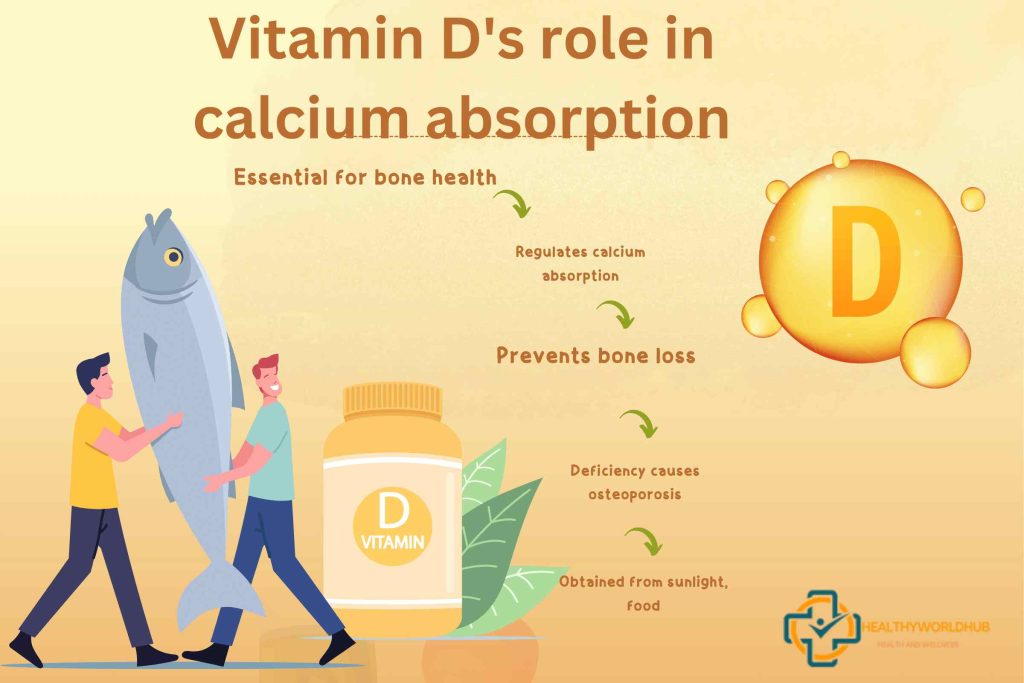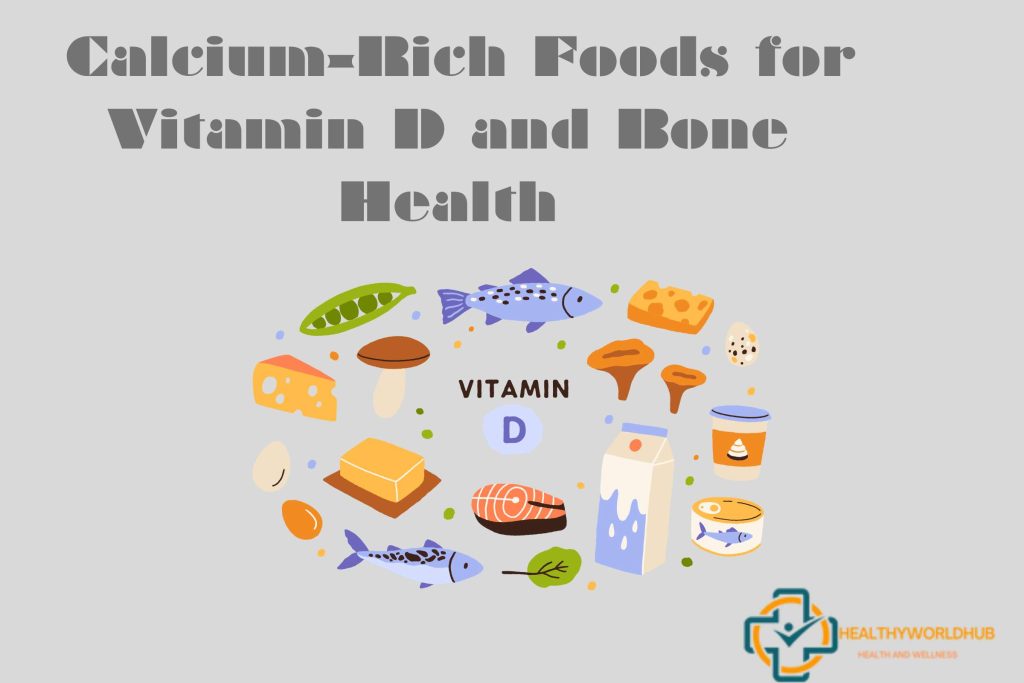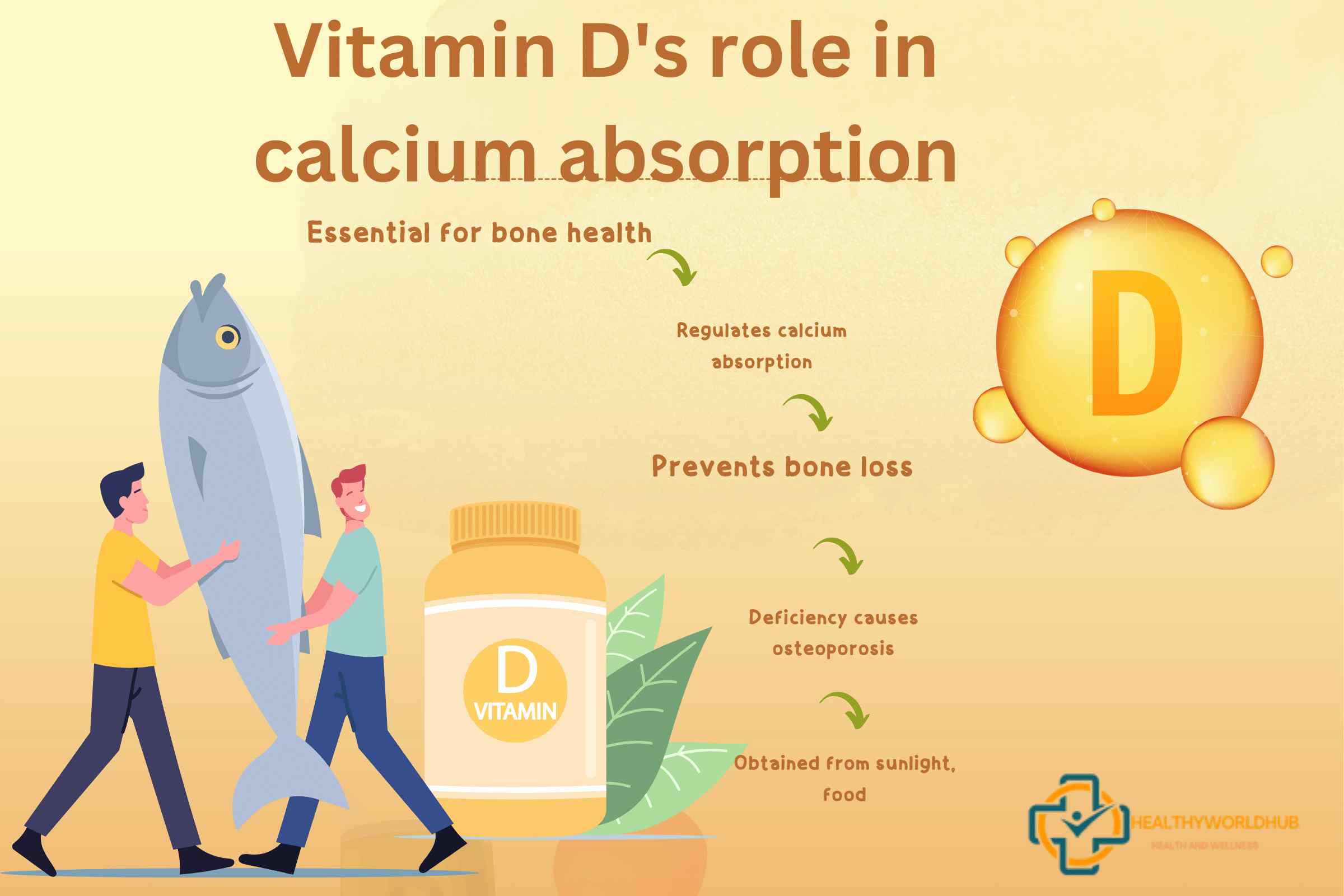Welcome to our blog on the fascinating topic of vitamin D effect on bone calcium levels! Have you ever wondered why CalciumCalcium is so essential for our bones? Or how vitamin D plays a critical role in maintaining healthy bone density. This article will explore everything you need about these two essential nutrients and their relationship with bone health. From understanding the factors that affect the body’s vitamin D and calcium levels to lifestyle changes that can improve absorption, we’ve got you covered. So, let’s dive in and learn more about the incredible impact of vitamin D effect on bone calcium levels
INTRODUCTION

Calcium and vitamin D for bone health is one of the most essential minerals in our body, playing a vital role in maintaining healthy bones. Our bones act as a storage bank for Calcium, making it essential to consume enough calcium-rich foods daily. Calcium is essential for strong bones and muscle function, and nerve transmission.
Vitamin D works hand-in-hand with Calcium when it comes to bone health. Its primary function is to aid in the absorption of CalciumCalcium from food and supplements into the bloodstream, which helps build and maintain strong bones.
Without adequate vitamin D levels, our bodies cannot absorb enough Calcium from our diet, resulting in weakened bones that are more sensitive to fractures and breaks. This underlines how crucial it is for general bone health to have enough quantities of Calcium and vitamin D.
In addition to its crucial role in building strong bones, vitamin D has been linked with other benefits, such as immune system support and reducing inflammation throughout the body.
Vitamin D’s role in calcium absorption, bone health, and the effects of deficiency.

Vitamin D plays a crucial role in calcium absorption and bone health. When we consume calcium-rich foods, our body needs vitamin D to help absorb the Calcium from the food and transport it into our bloodstream.
Without enough vitamin D, our bones can become weak and fragile, increasing the risk of fractures and osteoporosis. Vitamin D deficiency is also linked to other chronic diseases such as cancer, autoimmune disorders, and heart disease.
The most common source of vitamin D is sunlight exposure. When UV rays hit our skin, they trigger a chemical reaction that produces vitamin D3. However, many people need more sun exposure due to factors like geographic location or lifestyle habits.
Therefore, it’s essential to supplement with vitamin D through diet or supplements if necessary. Good dietary sources include fatty fish like salmon and tuna, egg yolks, mushrooms exposed to UV light, and fortified dairy products like milk and yogurt.
Ensuring adequate Vitamin D levels is critical for optimal bone health and overall wellness.
Factors That Affect Vitamin D and Calcium Levels in the Body
Several factors can affect our bodies’ vitamin D and Calcium levels. One such factor is our geographic location. People living closer to the equator are exposed to more sunlight, which is a primary source of vitamin D for the body. On the other hand, people living in areas with less sunshine may have lower vitamin D levels.
Another factor that affects vitamin D and calcium levels is age. As we grow older, our skin becomes less efficient at producing vitamin D from sunlight exposure, leading to decreased amounts of this essential nutrient in our body. Older adults also tend to absorb less Calcium from their diet than younger individuals.
Medical conditions like Crohn’s disease or celiac disease can also impact how well your body absorbs nutrients like CalciumCalcium and vitamin D. Kidney disease or liver damage can interfere with how these nutrients are processed by your body as well.
Lifestyle choices such as limited sun exposure due to clothing choices or sunscreen use can reduce the natural production of Vitamin D in the skin. Smoking tobacco products has been shown to decrease bone density, making it harder for bones to absorb Calcium properly.
All these factors highlight why eating foods rich in Vitamin D and Calcium is essential, and consult your doctor about supplementing if necessary. Hence, you maintain healthy bone levels throughout life!
Vitamin D and Calcium Testing
The signs and symptoms of vitamin D deficiency, which is a primary deficiency, include fatigue, muscle weakness, bone pain, and an increased risk of fractures due to weakened bones.
Testing for vitamin D and calcium levels is essential in assessing bone health. A blood test is typically used to measure the amounts of these nutrients in the body. It’s essential to understand that optimal levels can vary depending on age, gender, and overall health status.
For vitamin D testing, there are two standard measurements: 25-hydroxyvitamin D (25(OH)D) and 1,25-dihydroxy vitamin D (1,25(OH)2D). The former is the most commonly measured form of vitamin D as it reflects available stores within the body. Optimal ranges may differ based on sun exposure or dietary intake.
Calcium testing usually involves the measurement of total serum calcium rather than ionized CalciumCalcium since only a tiny fraction of CalciumCalcium circulates ionized in plasma. Calcium deficiency can lead to osteoporosis and other related problems.
Testing for vitamins and minerals should be conducted regularly under medical supervision so that dosages may be adjusted accordingly. This will help ensure your bones stay healthy throughout life!
Importance of Balanced Diet and Calcium-Rich Foods for Vitamin D and Bone Health

A balanced diet is essential for maintaining good health, including healthy bones. CalciumCalcium and vitamin D are the most essential nutrients for bone health. Calcium is a mineral that forms the structure of bones, while vitamin D helps the body absorb CalciumCalcium.
To ensure you get enough calcium and vitamin D, you need to eat a range of foods that are high in both. Dairy products like milk, cheese, and yogurt, leafy green veggies like kale and spinach, cereals and bread with added vitamins, and fatty fish like salmon and egg yolks are all good examples.
It’s worth noting that certain factors can affect how well your body absorbs these nutrients from food. For example, overeating salt or caffeine can lead to increased loss of CalciumCalcium through urine. On the other hand, getting enough protein can help with absorption.
Supplements may be necessary for those with difficulty getting enough calcium or vitamin D through their diets alone, such as those with lactose intolerance or limited sun exposure. However, it’s always best to consult a healthcare professional before starting any supplementation regimen.
A balanced diet with plenty of calcium-rich foods is crucial for maintaining strong bones. Vitamin D also plays a vital role in bone health by helping the body absorb CalciumCalcium more efficiently. By incorporating a variety of nutrient-rich foods into your meals each day–and being mindful of factors that may impact absorption–you can help support optimal bone health throughout your life.
Lifestyle Changes That Can Improve Vitamin D and Calcium Absorption
In addition to a balanced diet, there are lifestyle changes that can improve vitamin D and calcium absorption. One of the most critical factors is exposure to sunlight. Without sunscreen, spending time outside in direct sunlight for 10-15 minutes daily can naturally help your body produce vitamin D.
Exercise is another way to improve vitamin D and calcium absorption. Weight-bearing exercises like walking or running force bones and muscles to work harder, stimulating bone growth and strengthening over time.
Reducing alcohol consumption can also help with vitamin D levels. Alcohol interferes with the liver’s ability to convert vitamin D into an active form, resulting in lower blood levels of this essential nutrient.
Quitting smoking is crucial for overall health but especially important for maintaining healthy bones. Smoking has been linked to decreased bone density as it increases oxidative stress on the body, which damages cells responsible for building new bone tissue.
By incorporating these simple lifestyle changes into your routine, you can ensure optimal calcium and vitamin D absorption, improving bone health overall.
Vitamin D and Calcium for Specific Populations
Both Vitamin D and Calcium are important nutrients for overall health, but their significance may be amplified for certain groups, as vitamin D effect on bone calcium levels. For instance, pregnant women need sufficient amounts of vitamin D and Calcium to support fetal development and prevent complications like preeclampsia. Adequate intake of these nutrients is also essential for nursing mothers to ensure that their breast milk contains enough calcium and vitamin D.
Older adults are another population that may require extra attention when it comes to vitamin D and calcium levels. As we age, our bodies become less efficient at absorbing these vital nutrients, which can increase the risk of osteoporosis. Supplementing with vitamin D and Calcium can help promote bone health in older adults.
Individuals who follow a plant-based diet or have lactose intolerance may also be at higher risk of deficiency in these nutrients. Fortified foods or supplements can provide an alternative source for them.
Those living in areas with limited sunlight exposure might also benefit from supplements.
In summary, some populations require special consideration regarding their Vitamin D & Calcium intake due to various reasons such as pregnancy/nursing periods, the aging process, declining absorption rates by the body & vegan/lactose intolerant diets limiting food sources, among others.
Conclusion
Vitamin D is crucial in maintaining bone health and calcium levels. Without sufficient nutrient intake, our bodies cannot absorb CalciumCalcium properly, leading to weakened bones and an increased risk of fractures.
vitamin D effect on bone calcium levels can be influenced by various factors such as age, dietary habits, lifestyle choices, and certain health conditions. Therefore, getting tested regularly for deficiencies and making necessary changes to improve absorption rates through diet or supplements is essential.
In addition to incorporating more vitamin D-rich foods into your diet or taking supplements as needed, it’s also essential to maintain an active lifestyle with regular exercise that promotes bone strength. While you’re still young, making these minor adjustments now will set you up for a lifetime of strong bones.
So if you want healthier bones for life, start paying attention today! It doesn’t take much effort but could significantly benefit your overall well-being. Remember: your future self will thank you!
Vitamin D aids in the absorption of Calcium from food and supplements into the bloodstream, which helps build and maintain strong bones.
Fatigue, muscle weakness, bone pain, and an increased risk of fractures due to weakened bones.
Calcium is essential for strong bones and muscle function, and nerve transmission. It forms the structure of bones, and our bones act as a storage bank for Calcium, making it essential to consume enough calcium-rich foods daily.




